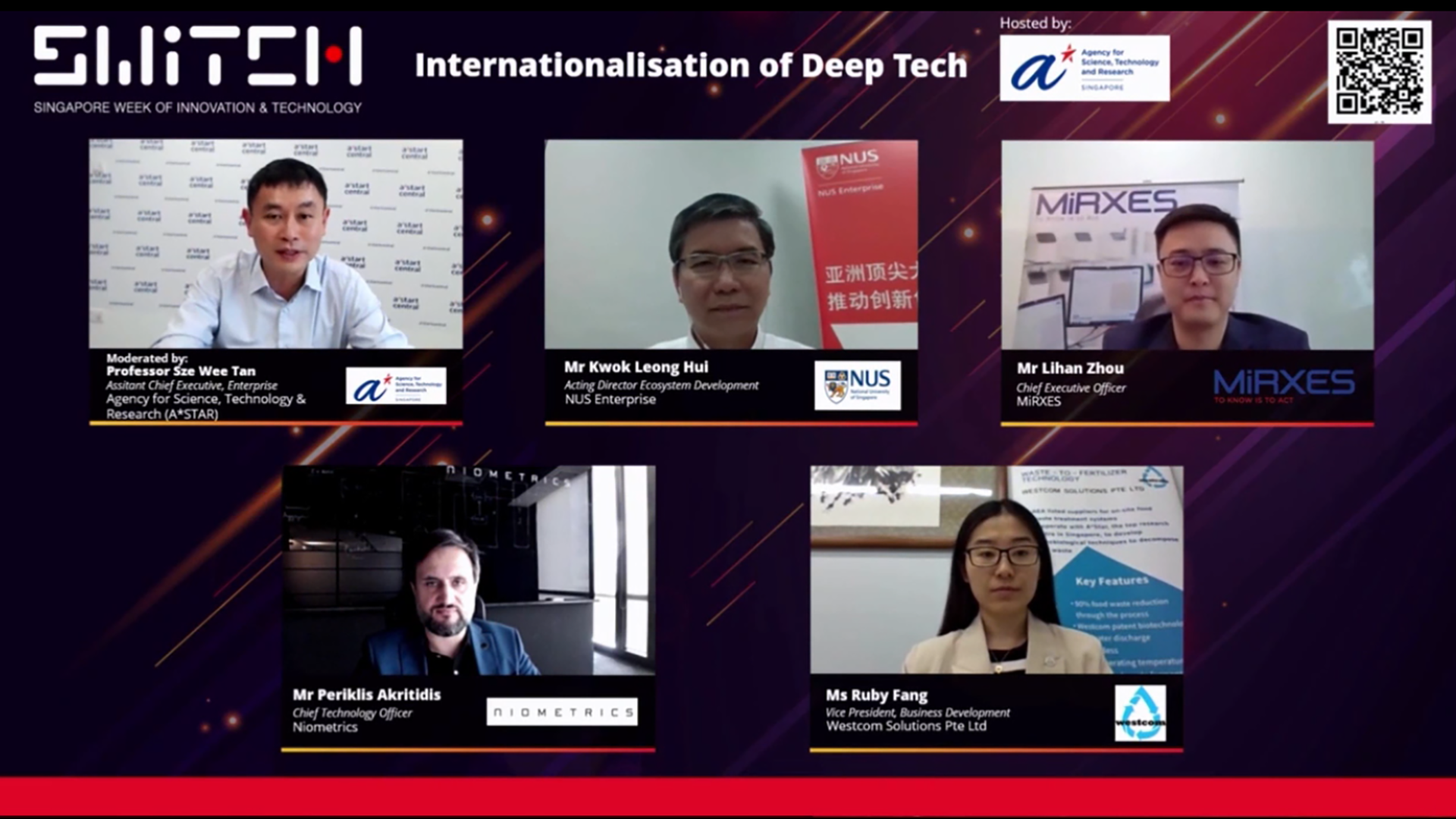It takes a ‘village’ to grow a tech and start-up ecosystem
The innovation and start-up scene in Singapore continues to stay vibrant amidst the pandemic – as proven by the success of the annual Singapore Week of Innovation and Technology (SWITCH) which ran virtually from 7 to 11 Dec, alongside the Singapore Fintech Festival (SFF).
NUS Enterprise and the NUS Industry Liaison Office, the entrepreneurship and innovation arms of the University, participated in various areas of the global event which featured exhibitions, conferences, workshops, lab crawls and partner activities such as SLINGSHOT, a start-up pitching competition, and TechInnovation, a technology-to-industry-matching platform.
NUS Village, one of the 10 digital villages within “Online City“, featured 50 virtual booths that were specially curated to showcase signature programmes and start-ups. Also in the spotlight were start-ups from NUS’ incubators and accelerator programmes (BLOCK71, ICE71, PIER71, THE HANGAR, NUS Enterprise@Singapore Science Park) as well as GRIP (Graduate Research Innovation Programme). A few key programmes were also featured at partners’ digital villages and buildings such as:
- BLOCK71 under the SLINGSHOT building
- BLOCK71 under the JTC building
- JUMPstart programme and its portfolio start-ups under the Health and Biomedical Sciences Hub building
- NUS Enterprise@Singapore Science Park and start-ups under the Innovation Made Real@Singapore Singapore Park building
- Venture Building Programme under Innovation SG building
Members of the NUS community also participated in panels with topics focused on the Singapore start-up ecosystem, smart urban solutions for sustainability, internationalisation of deep tech, market access in Canada and more.
Mr Hui Kwok Leong, Acting Director (Ecosystem Development) of NUS Enterprise highlighted a combination of factors that are powering NUS’ Innovation & Enterprise Ecosystem. These include research commercialisation of the University’s IPs, nurturing local talents and their skills development, creating ventures and supporting them through grants, localised incubation, acceleration as well as geographic market and industry access.
Elaborating on NUS’ experience in bringing deep tech start-ups to internationalisation, Mr Hui added, “NUS has helped over 80 start-ups to land in Suzhou and nearby surrounding cities. We have also established Innovfest China in 2015, an annual conference comprising of technology showcase and opportunities for start-ups to seek potential partners, relevant government support and grants in this part of China.”
Mr Hui, who straddles between Singapore and China due to his second role at NUS Research Institute (NUSRI) in Suzhou also shared an additional pro tip: For venturing into China, start-ups must have a ready prototype to garner interests and secure grants.
Further strengthening Mr Hui’s point on research commercialisation of the Univerisity’s IP, the NUS Industry Liaison Office presented 13 technology offers for interested tech seekers. Showcased at TechInnovation, these ranged from wearable sweat sensor for health monitoring to a reconfigurable hybrid robotic gripper (click here for more details).
SLINGSHOT 2020 took on a high note with the Top 100 Global Start-ups pitching through online live-streaming from all over the world -- including 10 NUS-affiliated start-ups. Keyless, an ICE71 start-up in the cybersecurity industry, emerged as second runner-up for this year’s SLINGSHOT competition.
With the closing of SFFxSWITCH and extensive activities, it was apparent that building a tech and start-up ecosystem would only be successful through the effort of an entire “village”.
By NUS Enterprise





